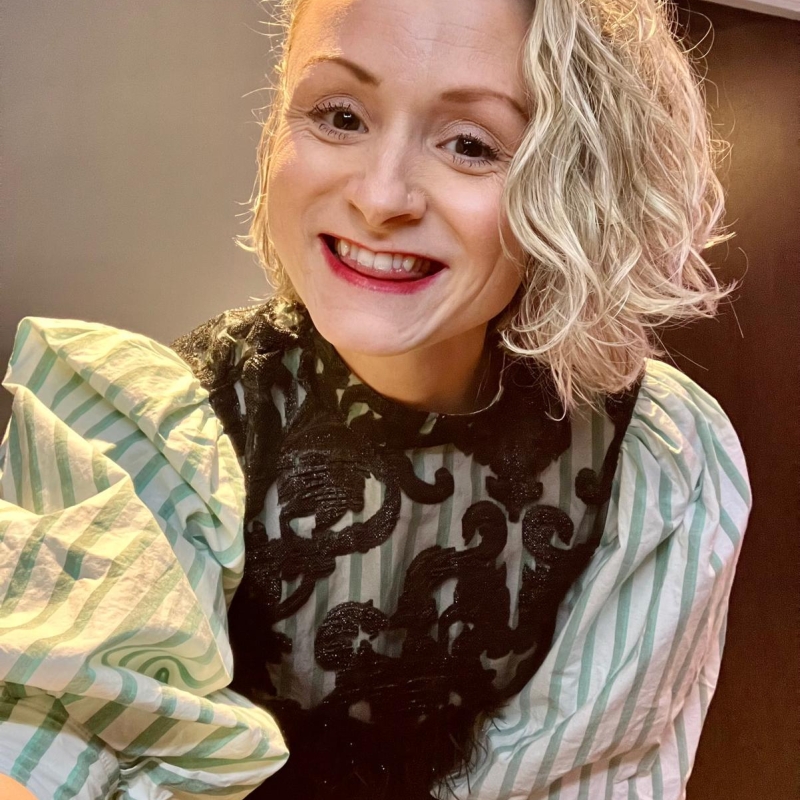Working in public relations carries a lot of weight.
Being responsible for the public’s perception of your client, having to send out difficult comms across an organisation, or putting out fires at a moments notice — all while remaining cool, calm and collected.
It’s no wonder that the majority of PRs that responded to a LinkedIn poll admitted to having experienced imposter syndrome.
Of over 200 respondents (accurate at the time of publishing), 91% of PR professionals across all levels of seniority, admitted to experiencing imposter syndrome at some point in their career.
According to a blog by The British Medical Association, imposter syndrome is “described as a feeling of inadequacy that persists despite evidence of success”. It also suggested that the feeling, which can be “both undermining and isolating”, can also lead to burnout.
In the CIPR’s State of the Profession report (2024), it found that of the 2,016 professionals surveyed, 23% said a lack of collective self-belief and confidence would be their biggest challenge over the next 12 months.
CIPR president, Advita Patel told PRmoment: “The prevalence of imposter syndrome in public relations is not about individual shortcomings but reflects the credibility gap our profession still faces in the eyes of business and the public.”
The CIPR suggested that chartership would help to alleviate some of those feelings, as some believe PR is still not recognised as a professional discipline.
However, being a chartered public relations professional, may only scratch the surface.
Claire Ferreira, founder of Mums In Marketing and regular writer on imposter syndrome said: “Imposter syndrome thrives in isolation. It loses its power when we create safe spaces to voice those feelings without judgement.
“What feels crushing in silence becomes lighter in conversation. The key isn’t to ‘fix’ people, but to free them, through kindness, connection, and perspective. When we share our journeys, we not only normalise the experience but show others they are not alone. That’s when confidence begins to grow.”
With that in mind, PRmoment asked practitioners to discuss their experiences with imposter syndrome, and also asked imposter syndrome coaches to reveal their tips on overcoming doubts.
You aren't alone
Trying to quiet the voice of self-doubt
Amira Williams, account director, Missive “I’ve always wondered if the term imposter syndrome was coined to keep women oppressed. I’ve only ever heard it used in the workplace, I’ve only ever had men tell me this is something I have. But, what externally looks like imposter syndrome, for me, is something else entirely.
“It’s a combination of navigating introversion in the workplace, managing occasional bouts of anxiety, and often being the only person in the room who looks like me. That alone is a lot to manage any day. My mind races, processing, listening, and planning what to say and how it might land, all while trying to quiet the voice of self-doubt.
“Labels help us define, categorise, and make sense of experiences. And in this case, that’s a good thing, because once we name it, we can start to silence it.
“Tackling imposter syndrome, for me, is about rewiring my brain. They’re wired to protect us, but that protective instinct can sometimes slip into overdrive and hold us back. Self-awareness allows us to notice doubt, name it, and choose to act anyway. A quote that grounds me is, ‘if people see your potential, it’s because it’s there, and you should believe in it too’. By showing up, despite doubt, we gather the evidence we need to prove to ourselves that we can.”
It was daunting and, frankly, overwhelming
Amber Ellis, senior account executive at CCGroup a Hoffman agency: “I’ve experienced imposter syndrome at several points in my career. One of the earliest — and most intense — moments came when I was less than two years into PR, working as an AE, and helping to launch the data analytics offering at CCGroup.
“Suddenly, I was in meetings with the board, pitching an idea that could have fallen flat, at such a young stage in my career. It was daunting and, frankly, overwhelming. But looking back, I’m grateful I went through it because I can now walk through the industry with conviction knowing that not only did I take on that challenge, but it worked, and it was successful.
"Another key time for me has been speaking on panels. I’ve joined three in the 18 months, and every single time I’ve been asked, my first thought is, ‘who on earth would want to listen to me? I’m just an SAE, my experience is limited’. But then I remind myself—no one is asking me to do this to embarrass me.
"A phrase that always stays with me is from Elizabeth Bananuka, ‘representation matters’. There’s real power in a junior, female, dyslexic, professional of colour standing on a stage and sharing insights. It challenges expectations of what leadership looks like in this industry.
"That’s why I’ve learned to embrace those uncomfortable moments. Because if my being visible makes even one person think, ‘if she can do it, I can too’, then it’s worth it."
A complete loss of self left me questioning my value
Megan Fell, associate director, The Heard: “Imposter syndrome might sound ridiculous to some, but for those who experience it, like I did after my first maternity leave, it can be confidence crushing.
“You could say it's constructed by the patriarchy, and you're probably right to some extent; it's a tool used by people who puff themselves up by pushing others down. But, for me, a significant break from work, coupled with: the demanding new responsibilities of parenthood; increased mental load; hormonal mayhem; an unfamiliar team; all types of guilt; and a complete loss of self — left me questioning my value.
“After a bit of time, self-reflection, and reintroduction of my ‘f*** this sh**’ attitude, I was back.
“How would I help someone else going through a bout of imposter syndrome? Talk to them, support them, include them. Cultivate a culture where there’s room to explore, to make some mistakes, and to fail and learn.
“Most importantly, show them they're valued; make them feel like part of the team with a key role to play, and give them the space to own that role. No one likes to feel micromanaged or undermined, especially if you're already second-guessing yourself, so giving them the space to own it, whilst supporting them when needed, will help them see their worth.”
A quiet voice telling me I wasn’t good enough
Tariq Peters, personal branding coach: “I struggled with imposter syndrome a lot in the early stages of my career. It didn’t matter how much experience I had or how hard I worked; there was always a quiet voice telling me I wasn’t good enough. What helped me move through it was building proof. Evidence that I’d done the work before and done it well.
“I created a folder called Good Job Reminders. Anytime a client or colleague praised my work, no matter how big or small, I’d screenshot the message and save it. I organised everything by month. On the days I doubted myself, I’d open that folder and remind myself of the facts. The evidence always said otherwise.
“If there was ever a moment where I could have done something better, I’d immediately ask for feedback. Not to seek reassurance, but to stay accountable. That helped me separate fact from feeling and allowed me to improve.
“I still get nerves. But I no longer mistake them for imposter syndrome. They are signs that I care. They remind me I’m stretching. Growth rarely feels comfortable. But when I sense I’m out of my depth, that’s my signal to lean in. That’s where the breakthroughs live.”
Imposter syndrome doesn’t impact everyone equally
Monique Noel Brown, alumni advisory board member, Taylor Bennett Foundation: “Imposter syndrome is so common in PR. It’s an intense industry where you’re constantly surrounded by people who seem smarter, more experienced, or more confident, which can easily make you question your own ability to perform. The unspoken reality is many of us are figuring things out as we go, but it just doesn’t always look that way on the outside. That cycle of comparison can make you feel like everyone else has it together, when in reality we’re all learning day-by-day.
“It’s also important to recognise that imposter syndrome doesn’t impact everyone equally. People of colour and neurodivergent professionals often face the added weight of bias and intersectionality, which can make those feelings of not belonging even more heavy.
“Personally I’m still learning to battle imposter syndrome, and what’s helped me most is remembering that PR is a team sport. No one person has all the answers, and the strongest campaigns are built on collaboration, transparency and asking questions.
“Managers can play a huge role in reducing imposter syndrome by normalising that culture: encouraging open conversations, celebrating small wins as well as big ones, being transparent about their own challenges, and considering different learning styles and needs.
"Not everyone thrives under the same kind of support, so tailoring guidance and tools to the individual is key. When leaders take that approach, it makes people feel valued not just for their output, but valued as human beings. That’s what ultimately helps people overcome those lingering feelings of not being enough."
People raise an eyebrow after learning I was born in 2000
Tristan Van Den Berg, senior account manager, Spa Communications: “As a young PR professional with big ambitions, imposter syndrome can creep in quickly — especially if you're moving up the ladder faster than expected.
“I began my career as an apprentice in 2019. Fast-forward through three B2B tech PR agencies, and at 25, I'm now a senior account manager.
“Age has been my biggest challenge. A senior job title doesn't automatically guarantee credibility, and I've felt those subtle moments of doubt when people raise an eyebrow after learning I was born in 2000. Even with strong results and positive reinforcement from colleagues and clients, those reactions can trigger imposter feelings.
“What helps me most is focusing on outcomes. Delivering excellent results is the best way to silence self-doubt. I channel imposter syndrome into motivation, using it as fuel to go above and beyond for clients.
“My advice: don't dwell on whether you deserve your place. Instead, concentrate on what you can do to add real, tangible value. When you consistently overdeliver, confidence follows naturally — and imposter syndrome loses its grip.”
I had to give myself plenty of pep talks
Laura Perry, head of growth at Tangerine Communications and Women In PR board member: “We need to talk about this more.
“Coming back from maternity leave with my second child, I was hit hard with imposter syndrome. After my first leave, it was during lockdown, and there was this strange sense of us all being in it together.
“But, when I returned to the office, it felt completely different. I was trying to learn and relearn so much, all while juggling two kids under four, my eldest starting school and navigating the commute again. It was a lot.
“I started networking just to get a sense of the landscape again. Along the way, I met incredible people and quickly realised how valuable those connections were. It wasn’t easy; in the beginning, I had to give myself plenty of pep talks.
“Earlier this year, I joined the Women in PR board not only to continue building my own support network, but also to help others build theirs. Because if you’re struggling with imposter syndrome, community makes all the difference. You don’t have to face it alone, you just need to find your people."
The expert advice
It’s not a mindset issue
Michaela Smith, imposter syndrome and conscious leadership coach: “Imposter syndrome is often fuelled by behaviours like perfectionism, procrastination, and people-pleasing. These behaviours are actually forms of bracing - functioning from a place of avoiding perceived failure, rather than from ease and creativity. That’s why imposter syndrome feels so exhausting.
“It’s not a mindset issue. Most senior leaders I work with have already done years of personal development and mindset work. They are highly skilled, respected, and experienced. And yet, even after years in senior roles, they can still feel like imposters. This is because imposter syndrome lives not in the mind, but in the nervous system.
“The nervous system is designed to protect us from danger. If, earlier in life, being fully seen or making mistakes felt unsafe, the body will brace against that same risk in leadership settings. It works tirelessly to protect us from undesired feelings we once experienced, often through perfectionism, procrastination, or over-delivering.
“The journey, then, is not to ‘beat’ imposter syndrome, that rarely works. It is to understand it. To recognise its protective role. And then, over time, to expand the nervous system’s capacity to tolerate making mistakes, asking for help, delegating, experimenting.
“This is how we return, little by little, to our authentic selves; the leader behind the layers of protective behaviours. Not the polished perfectionist, but the relatable, human leader others want to follow.
“A powerful question to ask is: Who would I be, how would I act, in the absence of the belief that I am not good enough?
“Even imagining this creates a small shift. A little more space, a little more freedom.Imposter syndrome dissolves not through force, but through creating internal safety. From that place, authentic presence, creativity, and true leadership naturally emerge."
Four tips you can implement today
Leadership coach, Louise Thompson, offered these four tips to help those suffering with imposter syndrome:
Look for the evidence that you belong and that you bring value to the table (your CV, feedback from stakeholders, the fact that you were hired) and trust this over misleading assumptions your mind may be making about what people think of you, and what you are really capable of.
Keep a sunshine email folder with positive feedback and wins, so you can refer to it on a rainy day when imposter syndrome is running rife and you need a quick boost of evidence that you are in fact doing a good job.
Remember that when managed correctly, imposter syndrome can be helpful as it can nudge us into a growth mindset where we accept we have more to learn, and commit ourselves to development. The key is to balance this with the unhelpful freezing that can occur that stops us moving forward at all.
Name your imposter syndrome, (mine is called Susan). It can be helpful to disassociate it from you and your identity to weaken its grip on you.
If you enjoyed this article, sign up for free to our twice weekly editorial alert.
We have six email alerts in total - covering ESG, internal comms, PR jobs and events. Enter your email address below to find out more:














